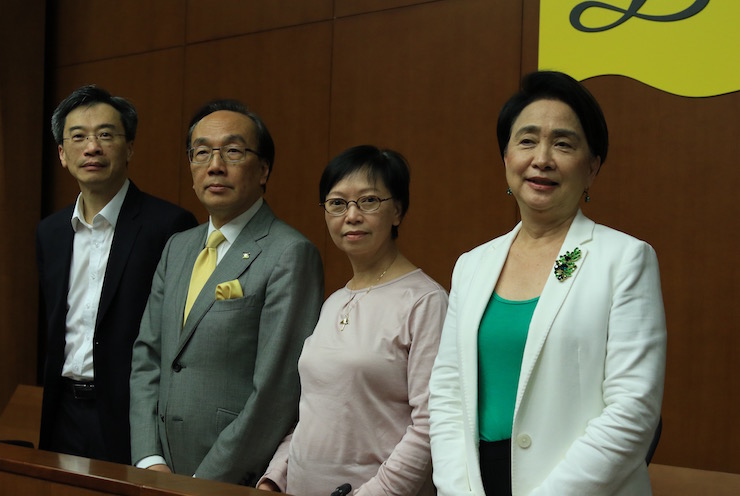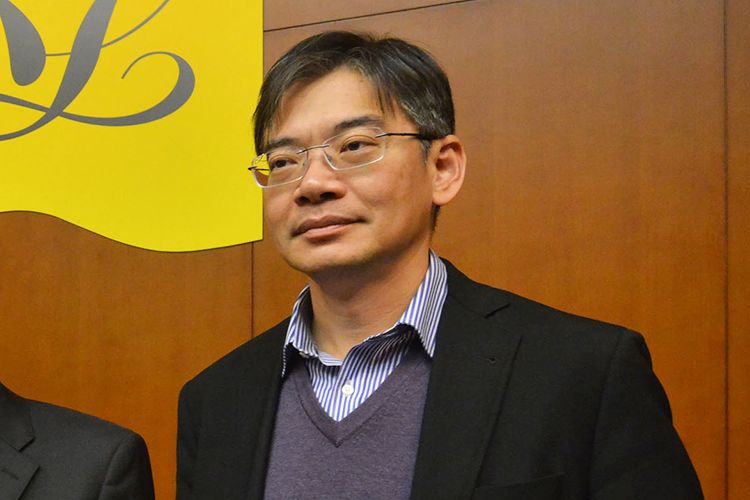Pan-democratic lawmakers were caught in controversy as the second reading of the Medical Council reform bill was passed at the Legislative Council on Friday, with the support of some members of the camp. But the bill has yet to reach its third reading, the final stage of debate.
Some members of the public were concerned that the bill’s addition of four non-doctor members to the council may allow the government to take control more easily, and that requirements for foreign doctors to work in Hong Kong may be lowered, sparking fears of less qualified mainland doctors practising in the city.
The pro-Beijing camp supported the bill and voted in favour. Lawmakers from the Democratic Party, Labour Party and some members of the Civic Party also voted yes.

The Civic Party’s Alvin Yeung Ngok-kiu came under the harshest criticism for supporting the passing of the second reading, as many said they were disappointed that he did not fulfil promises made during his election campaign in February that he will “defend the key position” in the Legislative Council.
“160,000 voters supported him into the legislature to sell out their own safety,” one said on Yeung’s social media page.
“I hope you will receive treatment from a mainland doctor when you are sick in the future,” another said.

Tactics
In response, Yeung said the LegCo must first pass the second reading in order to be read by the Committee of the Whole Council. In this stage, lawmakers can debate the amendments proposed by his party’s lawmaker Dr. Kwok Ka-ki.
Kwok proposed an alternative plan to increase the number of elected doctor members in the council, so that there will be 18 elected members and 14 appointed members in the council. This will make it more democratic than the government’s proposal of 16 elected and 16 appointed members.
Yeung said he supported reform of the Medical Council, “but it must be a reform that is more democratic, more capable of protecting patients and doctors.”
But the government has yet to agree with Kwok’s amendments.

Reluctant support
The Democratic Party’s chairwoman Emily Lau Wai-hing said it was a dilemma but the party had to support the bill, as there were other issues that needed discussion, such as fire safety and an amendment on laws overseeing private columbaria.
“But there are so many concerns and opposition – the [health] minister has no way to resolve them, Lau said. Addressing the Secretary for Food and Health Ko Wing-man, she added: “this is a big problem caused by you. You have not handled them all these years – this is why people are angry.”
The Labour Party’s Cyd Ho Sau-lan said that since the bill only required a simple majority to pass, it will definitely pass with the support of the pro-Beijing camp, but the government must explain how the current bill will help improve the efficiency of the Medical Council in handling complaints from patients.

Lawmakers who voted no at the second reading:
- Dr. Leung Ka-lau of the medical sector
- Charles Mok of the IT sector
- Kenneth Leung Kai-cheong of the accountancy sector
- Ip Kin-yuen of the education sector
- Claudia Mo Man-ching of the Civic Party
- Gary Fan Kwok-wai of the Neo Democrats
- Leung Yiu-chung of the Neighbourhood and Worker’s Service Centre
- Raymond Wong Yuk-man
Lawmakers who voted to abstain at the second reading:
- Dr. Kwok Ka-ki of the Civic Party
- Leung Kwok-hung of the League of Social Democrats
- Albert Chan Wai-yip of People Power
- Ray Chan Chi-chuen of People Power
Soon after the second reading passed, Leung Ka-lau proposed a motion to move the bill to be discussed at a select committee – a tactic to stall the debate.
The final LegCo meeting of this term will start next Wednesday at 11am and end at 23:59pm next Friday.
